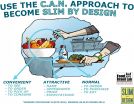Pharmaceutical industry regulation undermines NICE drugs appraisal work
2015-04-29
(Press-News.org) Government policies that support UK pharmaceutical science and enhance export income are costing the NHS millions and undermine the National Institute for Health and Care Excellence. In an essay published today by the Journal of the Royal Society of Medicine, health economists Professor Alan Maynard and Professor Karen Bloor describe an inflationary regulatory system that lacks accountability, is not evidence-based and subverts the efficiency of the technology appraisal work carried out by NICE, a target of pharmaceutical industry hostility since it was established in 1999.
Professors Maynard and Bloor, of the Department of Health Sciences at the University of York, point to the evaluation of end-of-life products such as cancer drugs. In 2009 NICE was instructed to increase the threshold of the cost-QALY ratio (where a QALY is one year of good quality life) for these drugs from £30,000. Provided firms do not exceed regulated rates of return on historical capital set out in the Pharmaceutical Price Regulation Scheme agreements, they are free to set their own prices. Professor Maynard said: "This has added billions to NHS costs, partly because the cost-per-QALY threshold is relatively high, contentious and is not evidence-based."
Also singled out for criticism is the Cancer Drugs Fund, which allocates £280 million per year to non-NICE approved cancer drugs on a case-by-case basis. Professor Maynard said: "The Coalition government renewed and increased the Cancer Drugs Fund to serve two political goals: the garnering of votes from public interest groups and the subsidisation of the pharmaceutical industry. This is an inefficient and inequitable scheme, not least because it discriminates against other diseases which may be equally in need of additional funding."
To illustrate how policy may support the pharmaceutical industry at the expense of the NHS, the authors give an example of how switching patients with age-related macular degeneration from one drug to another very similar drug that is licensed for the treatment of colorectal cancer could save the NHS in England £100 million each year. However, licensing issues and the threat of legal challenges from the pharmaceutical industry is thwarting NHS commissioners seeking greater efficiency in the use of their constrained budgets.
Professor Maynard concludes: "Government continues to subvert the efficiency of technology appraisal work carried out by NICE in order to subsidise industry. Does this benefit the UK taxpayer and NHS patients? Or does government tacitly wish to tax the NHS with high pharmaceutical prices of sometimes inefficient drugs and, in so doing, increase the wealth of industry?"
INFORMATION:
Notes to editors
Regulation of the pharmaceutical industry: promoting health or protecting wealth?
(DOI: 10.1177/0141076814568299) by Alan Maynard and Karen Bloor will be published by the Journal of the Royal Society of Medicine at 00:05hrs (UK time) on Wednesday 29 April 2015.
For further information or a copy of the paper please contact:
Rosalind Dewar
Media Office, Royal Society of Medicine
DL +44 (0) 1580 764713
M +44 (0) 7785 182732
media@rsm.ac.uk
The JRSM is the flagship journal of the Royal Society of Medicine and is published by SAGE. It has full editorial independence from the RSM. It has been published continuously since 1809. Its Editor is Dr Kamran Abbasi.
SAGE is a leading international publisher of journals, books, and electronic media for academic, educational, and professional markets. Since 1965, SAGE has helped inform and educate a global community of scholars, practitioners, researchers, and students spanning a wide range of subject areas including business, humanities, social sciences, and science, technology, and medicine. An independent company, SAGE has principal offices in Los Angeles, London, New Delhi, Singapore and Washington DC. http://www.sagepublications.com
ELSE PRESS RELEASES FROM THIS DATE:
2015-04-29
If you want to know the secrets of healthier eating, think of the kitchen fruit bowl. A fruit bowl makes fruit more convenient, attractive, and normal to eat than if the same fruit were in the bottom of the refrigerator.
A new Cornell study analyzed 112 studies that collected information about healthy eating behaviors and found that most healthy eaters did so because a restaurant, grocery store, school cafeteria, or spouse made foods like fruits and vegetables visible and easy to reach (convenient), enticingly displayed (attractive), and appear like an obvious choice ...
2015-04-29
Having a child diagnosed with epilepsy can be a frightening and confusing time.
Now, parents share their arduous and "circuitous" journey to get referrals for pediatric epilepsy surgery once their child's disease stops responding to anti-seizure medications. The UCLA study sheds light on the difficulties parents face obtaining specialty and sub-specialty care for their children during an already stressful time.
The study points to the need to develop interventions that target and remediate these barriers to comprehensive epilepsy care for children, said study first ...
2015-04-29
COLUMBIA, Mo. -- Individuals with Type 2 Diabetes have difficulty regulating their glucose -- or blood sugar -- levels, particularly after meals. Now, University of Missouri researchers have found that Type 2 diabetics can eat more protein at breakfast to help reduce glucose spikes at both breakfast and lunch.
"People often assume that their glucose response at one meal will be identical to their responses at other meals, but that really isn't the case," said Jill Kanaley, professor and associate chair in the MU Department of Nutrition and Exercise Physiology. "For instance, ...
2015-04-29
Weill Cornell Medical College researchers have shown for the first time that a gene previously implicated in blood vessel formation during embryonic development and tumor growth also induces immune suppression during tumor development. This finding, published April 29 in Nature Communications, opens the door for new therapeutic approaches and vaccine development in treating patients with melanoma and other advanced-staged cancers.
Two decades ago, researchers discovered that a gene called Inhibitor of Differentiation 1 (Id1), which is normally found in the embryo, was ...
2015-04-29
Chemotherapy can be very effective against small prostate tumors. Larger prostate tumors, however, accumulate cells that suppress the body's immune response, allowing the cancer to grow despite treatment. Researchers at the University of California, San Diego School of Medicine now find that blocking or removing these immune-suppressing cells allows a special type of chemotherapy -- and the immune cells it activates -- to destroy prostate tumors. This novel combination therapy, termed chemoimmunotherapy, achieved near complete remission in mouse models of advanced prostate ...
2015-04-29
CORVALLIS, Ore. - A new study using evidence from a highly detailed ice core from West Antarctica shows a consistent link between abrupt temperature changes on Greenland and Antarctica during the last ice age, giving scientists a clearer picture of the link between climate in the northern and southern hemispheres.
Greenland climate during the last ice age was very unstable, the researchers say, characterized by a number of large, abrupt changes in mean annual temperature that each occurred within several decades. These so-called "Dansgaard-Oeschger events" took place ...
2015-04-29
Video didn't killed the radio star, as the eponymous 1978 pop song predicted, and now, researchers have found, cross-channel discounts for online movie sales don't cannibalize online rentals of the same movie.
Analyzing data from a major movie studio that distributes its catalog of titles online, Jing Gong, a doctoral candidate in information systems and management at Carnegie Mellon University, and her co-authors measured the impact of price discounts on own- and cross-channel sales of digital movies. They confirmed their expectation that digital movie consumers are ...
2015-04-29
Seattle, WA, April 29, 2015 - Patients with esophageal cancer who survive 5 years after undergoing surgery might breathe a sigh of relief and become complacent about continued monitoring. In fact, there is little published information on the outcome of patients with locally advanced esophageal cancer (LAEC) who survive beyond the 5-year mark. A study that will be presented by Brendon Stiles, MD, Associate Professor of Cardiothoracic Surgery, Weill Cornell Medical College, New York-Presbyterian Hospital, at the 95th AATS Annual Meeting finds that these survivors still face ...
2015-04-29
Danish researchers from the University of Copenhagen and Herlev Hospital have made a discovery that may change the principles for treating certain types of cancer.
The discovery relates to the so-called telomeres that constitute the ends of human chromosomes. Short telomeres are related to unhealthy lifestyles, old age and the male gender - all of which are risk factors in terms of high mortality. Up until now, the assumption has been that short telomeres are related to ill health. The challenge for researchers worldwide has therefore been to find out whether or not the ...
2015-04-29
Putnam Valley, NY. (April 28, 2015) - Mesenchymal stem cells (MSCs) have been transplanted to successfully treat a variety of diseases and conditions. The benefit of using MSCs is their ability to self-renew and differentiate into a variety of specialized cell types, such as osteoblasts (cells contributing to bone formation), chondrocytes (cartilage cells), adipocytes (fat cells), myocardiocytes (the muscle cells that make up the cardiac muscle), and neurons (nervous system cells).
MSCs have shown the ability to modulate the immune response and therefore reduce local ...
LAST 30 PRESS RELEASES:
[Press-News.org] Pharmaceutical industry regulation undermines NICE drugs appraisal work

